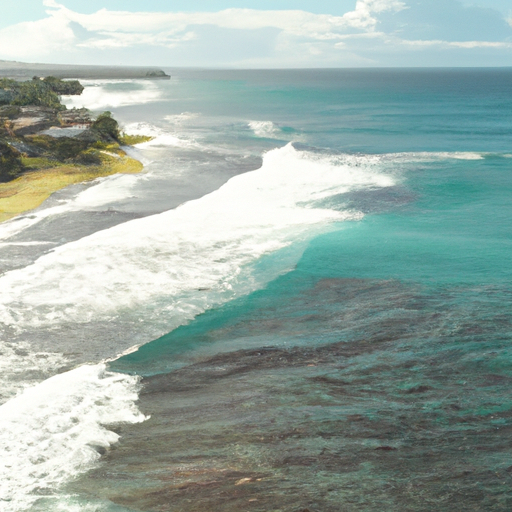-
Table of Contents
Tourism Ocean Threat

Tourism has become a booming industry worldwide, attracting millions of travelers each year. While it brings economic benefits to many destinations, it also poses a significant threat to the ocean and its delicate ecosystems. The negative impacts of tourism on the ocean are numerous and must be addressed to ensure the long-term sustainability of our marine environments.
Marine Environment Risk
One of the major risks posed by tourism to the marine environment is pollution. The increase in tourist activities often leads to an increase in waste generation, including plastic bottles, food packaging, and other non-biodegradable materials. These pollutants find their way into the ocean, causing harm to marine life through ingestion or entanglement.
Furthermore, the discharge of untreated sewage from tourist facilities, such as hotels and cruise ships, directly pollutes the ocean. The high concentration of nutrients in sewage can lead to eutrophication, a process that depletes oxygen levels in the water and creates dead zones where marine life cannot survive.
Another significant risk is the destruction of coral reefs, which are vital ecosystems supporting a wide range of marine species. Tourists often engage in activities such as snorkeling and diving, which can result in physical damage to coral reefs. Additionally, the use of sunscreen by tourists, particularly those containing harmful chemicals like oxybenzone, contributes to coral bleaching and disrupts the delicate balance of these ecosystems.
Sea Holiday Impact
The impact of tourism on the ocean extends beyond pollution and physical damage. The sheer number of tourists visiting coastal areas puts immense pressure on local resources and infrastructure. The construction of hotels, resorts, and other tourist facilities often requires the destruction of natural habitats, including mangroves and coastal wetlands.
Overfishing is another consequence of tourism, as the demand for seafood increases with the influx of tourists. This can lead to the depletion of fish stocks and disrupt the balance of marine ecosystems. Additionally, the use of destructive fishing practices, such as dynamite fishing or bottom trawling, further exacerbates the negative impact on the ocean.
Tourism Ocean Threat: A Call for Action
To mitigate the threats posed by tourism to the ocean, it is crucial to implement sustainable practices and raise awareness among tourists and local communities. Governments and tourism authorities should enforce strict regulations to minimize pollution and protect sensitive marine areas.
- Reduce Single-Use Plastics: Encourage tourists to use reusable water bottles and provide refill stations in tourist areas. Ban the use of plastic bags and promote eco-friendly alternatives.
- Improve Waste Management: Implement proper waste management systems in tourist destinations, including recycling facilities and regular beach clean-ups.
- Establish Marine Protected Areas: Designate specific areas where tourism activities are limited or prohibited to protect vulnerable marine ecosystems.
Furthermore, education and awareness campaigns should be conducted to inform tourists about the importance of responsible tourism and the impact of their actions on the ocean. Tourists can make a positive difference by choosing eco-friendly tour operators, supporting local sustainable initiatives, and respecting marine life and habitats during their visits.
By taking collective action and adopting sustainable practices, we can ensure that tourism becomes a force for good, benefiting both local economies and the ocean. Let us protect and preserve our marine environments for future generations to enjoy.
For more information on sustainable tourism practices, visit Sustainable Travel.